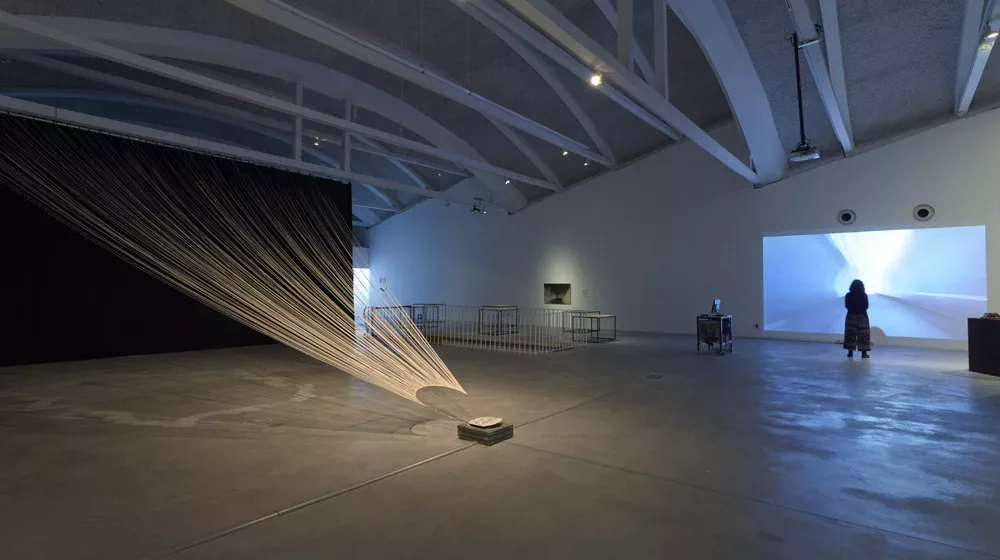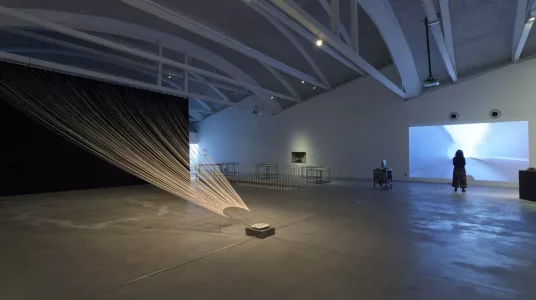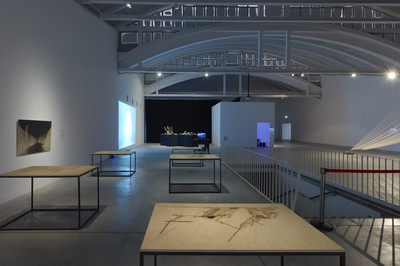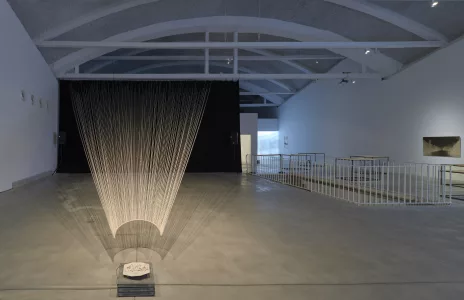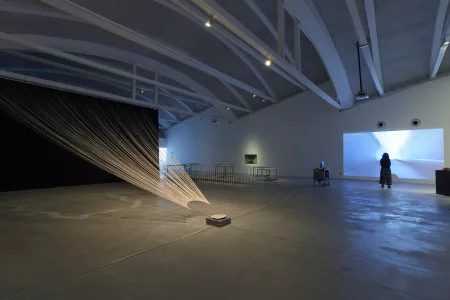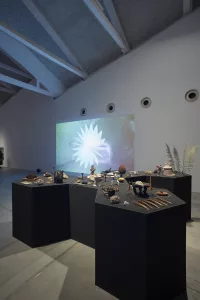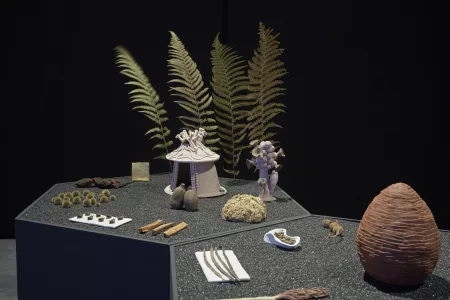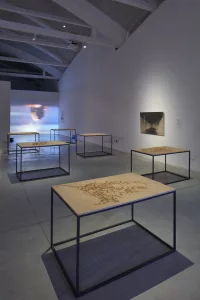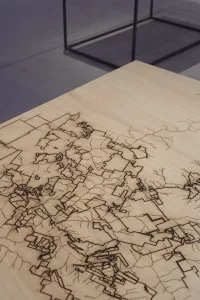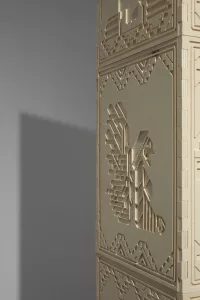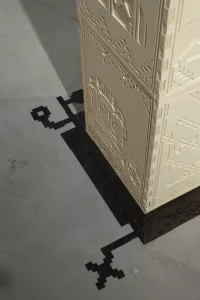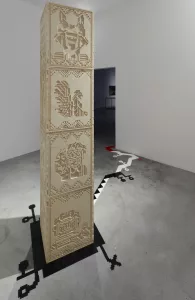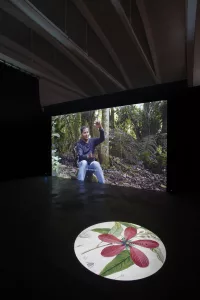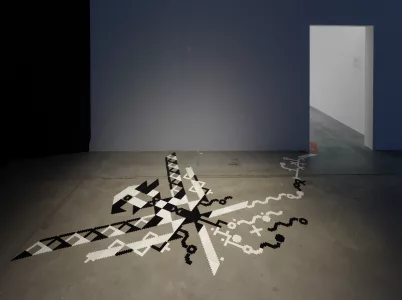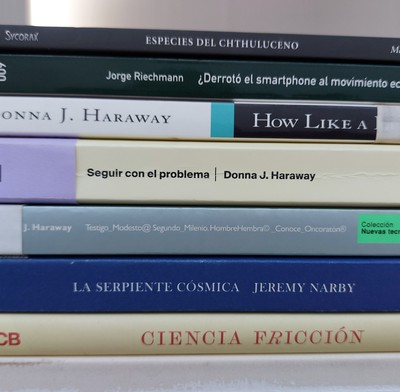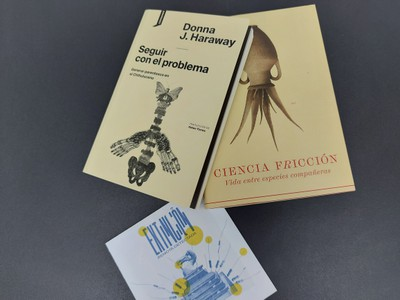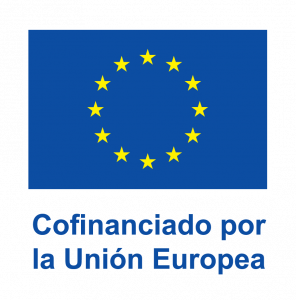Andean science fiction contends that ruins are not a remnant of the past but a code to read the future. Living proof of a distant world, each ruin contains within it a mythical narrative with its own stories of origins and longings for the future. As we enter the Sixth Extinction, with ecosystems disappearing at an alarming rate, now is perhaps a good time to look back at other extinctions—far away in time or in the imagination, though everything depends on your perspective—and at the way we are handling the collapses currently underway, with what knowledge and what technology, what myths and fictions, and with what idea of the future.
This exhibition showcases artistic projects which, from various different angles, examine worlds that have vanished or are on the verge of extinction. It begins in the Andes, with a work inspired by pre-Columbian computing systems which fell into disuse after colonization, and ends in the ground zero of environmental ruin, the Amazon rain forest, whose remnants will one day reveal how our civilization watched it perish. And between these works, each alluding to different extinctions—one rooted in the past, another probably in the future—many others are unfurled: present or imagined, technological or ecological, human or not. Like ruins, they all share in common the fact that they simultaneously condense many times and meanings. Each extinction is a coded message which a vanishing world leaves for the next.
Curated by: Maria Ptqk
Artists: Ursula Biemann, Magali Daniaux and Cédric Pigot, Bárbara Fluxá, Raquel Meyers, Constanza Piña, Diana Toucedo
Graphic Design: Studio Llunik
This project is part of the programme of activities of STUDIOTOPIA – Art meets Science in the Anthropocene, an initiative that aims to increase collaborations between cultural and research institutions, academia, innovation centres, creatives and citizens. The network, funded by the Creative Europe programme of the European Union, is made up of eight European cultural institutions: Centre for Fine Arts (BOZAR) and GLUON in Brussels, Ars Electronica in Linz, Cluj Cultural Centre in Cluj, Laznia Contemporary Art Centre in Gdansk, Onassis Stegi in Athens, Vrije Universiteit Amsterdam and LABoral Centro de Arte in Gijón.

